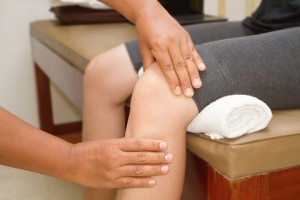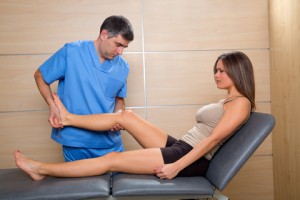Work and social management

After seven calendar days of self certification the patient is required to obtain a fit note. From 6 April 2010, the fit note replaced the sick note (medical statement or doctor's note); the main change is that a GP can give the patient advice to help him/her return to work. This is because work can play an important part in helping people to recover from illness or injury and is recognised as being good for both physical as well as mental health.
The fit note can be issued on a:
- Face to face consultation
- A telephone conversation
- A report from another doctor or healthcare professional.
The GP can choose one of two options in providing a fit note, that:
The patient is 'not fit for work’ – the patient should refrain from work for a period of time
The patient 'may be fit for work' – the patient’s health condition does not necessarily mean that they cannot return to work; however they may not be able to complete all their normal hours or duties, or they may need some assistance to help them undertake their normal duties.
The fit note also includes:
- more space for the GP to give general advice about the impact of the patient's illness or injury
- tick boxes for the GP to suggest, where appropriate common ways in which the employer can support return to work. The GP can choose the 'may be fit for work' option if they think that returning to work - with the support from the employer - will help them
The GP can give general advice on the fit note about how the patient's hip or knee arthritis may affect their ability to work. This advice may be discussed with the employer to see if the patient can return to work. Many of the patients likely to develop OA will be in work, especially self-employed. Therefore, it is important to consider how OA affects the work and social aspects of a patient’s life. Even if the individual has retired, it is important to ensure that independence, social engagement and continuation of hobbies are featured in any management plan. It is important to note the key activities and roles that patients are prevented from enjoying and how the hip and knee OA interferes with work and family roles. Most OA problems can be accommodated at work once obstacles have been identified with appropriate modifications, for example, the GP may suggest possible changes, such as:
- returning to work gradually, for example, by starting part-time
- working different hours temporarily
- performing different duties or tasks
- having other support to do your job, for example, chair raisers, long handled grabbers, stair rails etc.

The advice should describe the limitations that the person may have and should not be too prescriptive about the solutions e.g. a person with hip or knee pain may be given the advice ‘cannot sit for long periods of time’ rather than ‘frequent movement should be avoided’. It should be explained to the patient that they should also be open with their employer about what tasks they are able and unable to do. Without this information the employer will not be able to provide the right support. It should be pointed out that the statement is advice to your patient and is not binding on the employer. The purpose of the advice is to assist both the patient and employer in facilitating ways in which the employee can return to work. In some cases the advice may not be possible in which case the patient should be treated as if the GP had advised that they were not fit to work. In such situations, patients are not required to return to the GP for a new statement. If the employer has an occupational health service, an occupational health advisor may be able to offer help and advice about going back to work especially if the issues are complex or where work is a contributor to the health condition and a resolution of work issues are required before a return to work is possible.
If it is possible for the patient to return to work, the patient and their employer should agree on:
- how the patient will return
- what support the patient will receive
- how long the support will last
At present there is a government backed pilot scheme called the ‘Fit for Work Service’. This is an assessment and advice service for people who have had four weeks sickness absence and will be able to access:
- Quick and holistic assessment by case managers to identify the client’s health and non-health related conditions
- Ongoing case management to identify latent concerns (often non-medical)
- Fast access to physiotherapy
- Facilitating better communication between employee and employer and providing advice for back to work options
- Advice to improve and manage long term conditions
This will also relieve GP’s from having to negotiate with employers about their workers return to work. It is envisaged that this scheme will be rolled out across the UK from 2014. For more information on the Fit Note
Healthy Working Wales has been developed to support employers, employees and health professionals to improve health at work, prevent ill health and to support return to work following ill health.
For more information on the Fit for Work Scheme
- https://www.arfonphysiotherapy.co.uk/physiotherapy-services/rhyl-city-strategy-in-work-support-service/
- http://research.dwp.gov.uk/asd/asd5/rports2011-2012/rrep792.pdf
Information resources for patients and carers
Williams N.H., Amoakwa E., Burton K, Hendry M et al.The Hip and Knee Book : TSO London UK : 2009
Useful websites:
- Expert Patient Programme
- NHS Direct Wales Osteoarthritis
- Pain Concern
- Action on Pain
- Healthy Working Wales
- Versusarthritis (previously Arthritis Care and Arthritis Research UK)
Useful contacts:
Advice on medication may also be sought from local community pharmacists, occupational health, chiropractor, osteopath, physiotherapist, acupuncturist, general practitioner
Information for carers and people with disabilities is available at:
- 'Caring for someone' and 'Disabled people' from Directgov
- Battersby M, Von Korff M, Schaefer J, et al. Twelve evidence-based principles for implementing self-management support in primary care. Joint Commission Journal on Quality and Patient Safety.2010; 36:561-70.

